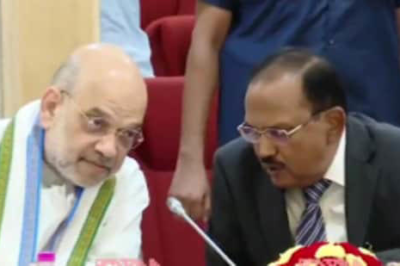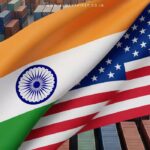
Key Highlights:
- Canadian PM Justin Trudeau has accused India’s top officials—Home Minister Amit Shah, NSA Ajit Doval, and ex-R&AW Chief Samant Goel—of involvement in the murder of Khalistan Tiger Force terrorist Hardeep Singh Nijjar.
- Allegations are based on intelligence, with no hard legal evidence, as admitted by Trudeau.
- US and Canada are at the forefront of the issue, while other Five Eyes nations demand more evidence before supporting Canada’s claims.
The Allegations
Canadian Prime Minister Justin Trudeau has pointed fingers at Indian officials, including Home Minister Amit Shah and National Security Advisor Ajit Doval, for the killing of Khalistani terrorist Hardeep Singh Nijjar on June 18, 2023. Trudeau’s accusations stem from unspecific intelligence inputs rather than concrete evidence. Other Five Eyes alliance members—Australia, New Zealand, and the UK—have not yet endorsed Trudeau’s allegations without proof.
This issue has gained traction as Trudeau and pro-Khalistani elements, particularly Gurpatwant Singh Pannun, a dual-citizen activist, have been vocal against India. Pannun, a known figure within the Sikh community in the US, UK, and Canada, has fueled the Khalistani cause and provided Trudeau with information on alleged Indian actions against Khalistanis.
Why Target Shah, Doval, and Goel?
The key Indian figures accused share a strong nationalist identity:
- Amit Shah – The Union Home Minister has been a firm believer in India’s rise as a global power. He follows a no-nonsense approach to India’s security and sovereignty, refusing to seek approval from foreign powers when it comes to protecting India. His strict stance on national security and disdain for external interference may have made him a target in this case.
- Ajit Doval – India’s National Security Advisor, Doval, is known for his strategic and operational planning to protect India’s national interests. He has bluntly spoken to US, UK, and Canadian officials about their tacit support for Kashmiri and Khalistani separatists. Doval has been in constant dialogue with Trudeau’s government, asking for evidence to back the Nijjar allegations, which Trudeau has yet to provide.
- Samant Goel – The former R&AW chief, trained as a counter-terrorism expert, has been tracking Khalistani elements since the 1990s. Goel has been involved in diplomatically addressing Khalistani movements in the West. His efforts to remove blacklists of Sikh expatriates in countries like the US, UK, and Canada, along with his straightforward approach to counterterrorism, likely made him a figure of contention for pro-Khalistani activists.
US and Canada’s Role
The US has its own vested interests in the matter, having indicted two Indian nationals for conspiracy to murder SFJ counsel Gurpatwant Singh Pannun in June 2023. Pannun, who holds dual citizenship, has been vocal in his opposition to India and plays a crucial role in rallying Sikh separatists in the West. Despite the lack of evidence, the US and Canada seem to be leading the charge against India in this scenario.
Broader Implications: India’s Growing Global Role
The Nijjar-Pannun affair has deeper roots in geopolitical dynamics. The West is increasingly wary of India’s rise as a major global player, both economically and militarily. The Modi government’s strong stance on national security, coupled with India’s increasing prominence on the world stage, has attracted attention and, in some cases, opposition from Western nations.
The use of Khalistani groups to pressure India may also be seen as part of a larger Western effort to curb India’s rapid growth. The Khalistani issue suits certain political factions in the US, UK, and Canada, where the Sikh diaspora holds significant voting power and financial influence. By aligning with these groups, politicians like Trudeau gain domestic support, even at the cost of international relations.
Conclusion
While the accusations against Amit Shah, Ajit Doval, and Samant Goel are based on intelligence with little legal backing, the larger context involves Western unease over India’s growing influence. Canada’s actions, supported by the US, reflect the complexities of international politics where national security, geopolitical interests, and domestic political gains intertwine.
India, meanwhile, continues to sharpen its capabilities, focusing on self-defense and national sovereignty, as it prepares to take its place on the global high table.








































Leave a Reply